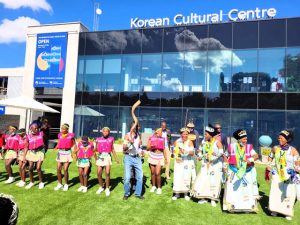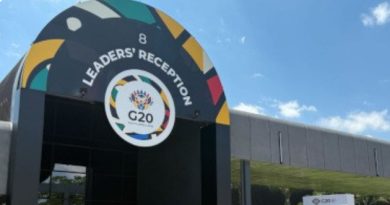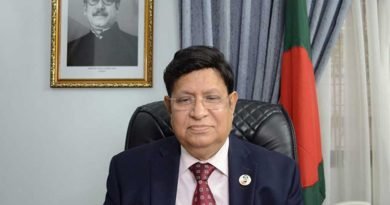Africa’s youth dividend and Korea
Foreign Desk
When Ambassador Chull-Joo Park of the Republic of Korea to South Africa introduced the panel of esteemed luminaries in his opening remarks, it was fitting that he invited former Ambassador of Korea to South Africa, Prof Jong-dae Park for his insights. ‘Reflecting on Korea’s Economic Development’ was the title of the hybrid seminar hosted jointly by the Embassy of Korea in South Africa and ACCORD (The African Centre for the Constructive Resolution of Disputes) at the CSIR Convention Centre in Pretoria, South Africa.
The people centred New Village Movement reform policy driven by agricultural and rural land reform initiated the Republic of Korea’s (ROK) meteoric transition to be ranked among the developed nations and advanced economies of the world. It is this economic developmental experience that Korea is keen to share as it marks 30 years of relations and cooperation with South Africa.
When Prof Park arrived in Africa as a young boy with his father from Korea who was posted as a diplomat to Uganda, he was struck by how developed it was compared to his native Korea at that time. He was taken aback when he returned to Africa as Ambassador, at how the continent had stagnated and even regressed in some instances. He has been constantly researching Korea’s phenomenal development and has written widely on how it can be applied to accelerate Africa’s development trajectory, the continent of his childhood memories.
The stark differences in almost every aspect of the respective countries as presented by the experts and speakers that stand out are the geographical and topographical contrasts, and historical and demographic differences. The ROK is located in the far-east. It is 12 times smaller than South Africa (SA) with roughly the same size population. ROK is a homogenous nation with the same language, traditions and customs, unlike SA which has 11 official languages and differing cultures and traditions which include those of nationals brought to SA during the period of slavery and colonialism. Korea has no mineral resources and its mountainous terrain makes it less than ideal for agriculture. By contrast, Africa is mineral rich and has natural abundance. Both countries share painful histories of conflict, violence and exploitation, and yet ROK has become the ‘economic miracle of our time’ said Prof Rory Knight, Chair of Oxford Metrica, who has business interests in both countries and expressed optimism for SA’s growth and development.
Former South African President Kgalema Motlanthe presented the keynote address in which he delved into the history of Korea, its subjugation under Japanese imperialism and the devastating Korean War, in which even South African pilots engaged and some lost their lives and whose active assistance is acknowledged to this present day. Motlanthe also pointed out the international support ROK received to rebuild their country through skills and knowledge transfer programs. He mostly commended the Korean people for their resilience and resolve to reconstruct their country and uplift a nation.
Dr Martyn Davies of Deloitte remarked that ROK is a poster child for development. He used the example of a company manufacturing toothpaste that has grown on to become a world leading appliance and tech manufacturer, like many other ROK companies and brands across the spectrum, from automotive, energy, ship building among others. Ambassador at large at the Department of International Relations and Cooperation for South Africa, Prof Anil Sooklal spoke about meritocracy and an investment in a people centred system, one that builds trust, loyalty and commitment.
Dr Vasu Gounden, Founder and Executive Director of ACCORD, shared his optimism on South Africa’s growth trajectory saying that the country has made significant progress in its almost 30 years of transformation to a constitutional democracy. Today SA is ranked among the top three economies on the African continent and ranked among the top 40 globally. He introduced Sanusha Naidu, a Senior Research Fellow at the Institute for Global Dialogue whose contribution to the discussion revolved around the much talked about inflection point currently being experienced and Africa becoming a focal point in the changing world order. The concerted efforts to bring about peace and stability and the roll out of the continent wide free trade agreement – AfCFTA are the basis for Africa’s agency, she said. ROK is part of this development process and its soft power will be a key component in building people to people linkages. The opening of the Korean Cultural Centre in Pretoria, South Africa, the third of its kind in Africa, is evident of ROK’s commitment to build a strong and mutually beneficial relationship.
Concluding the seminar Dr Catherine Duggan, who has spent many years living in various countries and regions of Africa, describes how a change in perception and mind-set of how the continent functions, will spark innovation and spur new enterprise. The 780 million Africans that are 25 years of age and below have their dreams and ideals and carry the hopes of a previous generation. They are the early adopters poised to make a mark on a world at the cusp of a new era, and they are equipped with the exuberance for life.
(Diploma Society)




